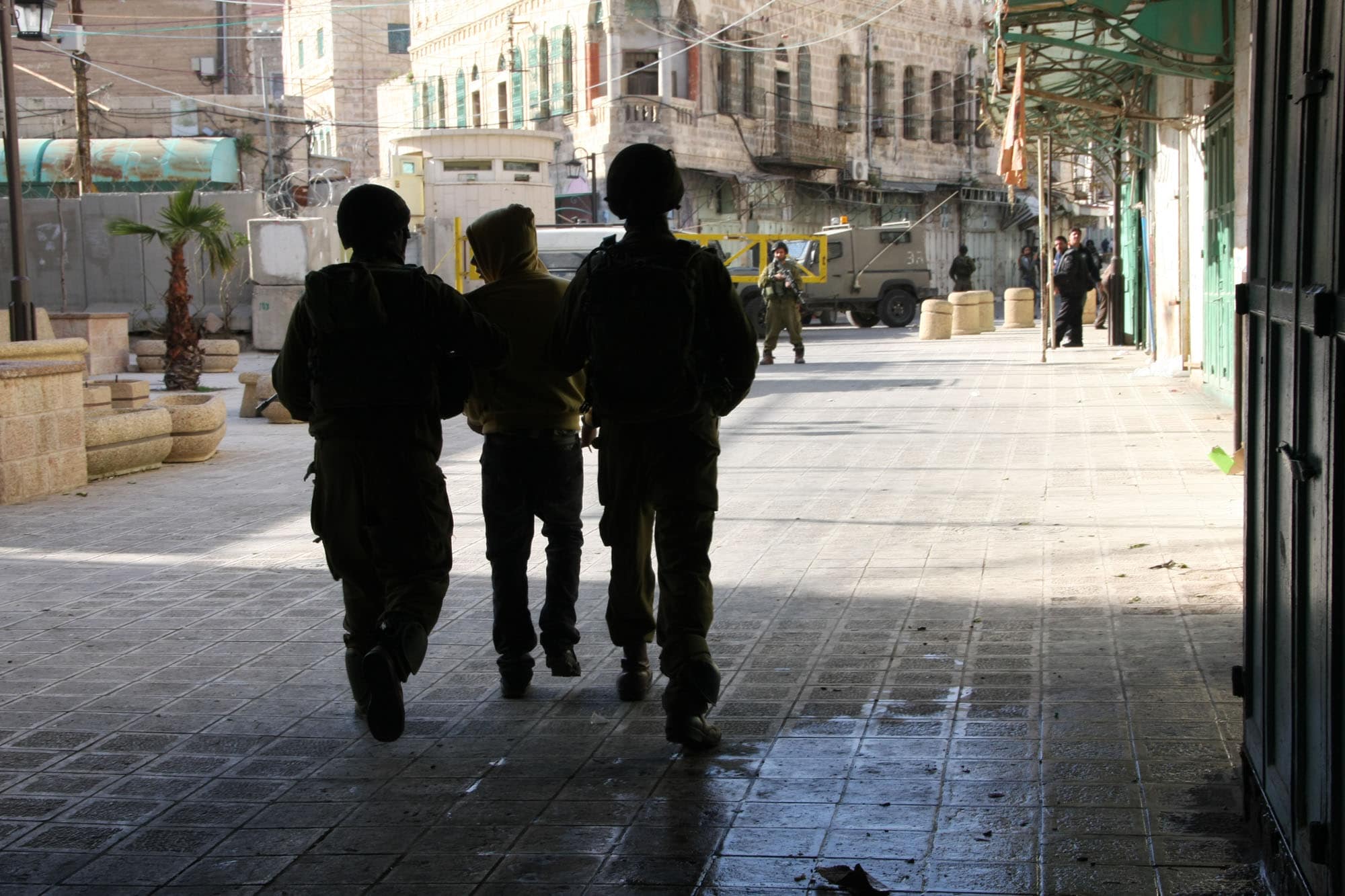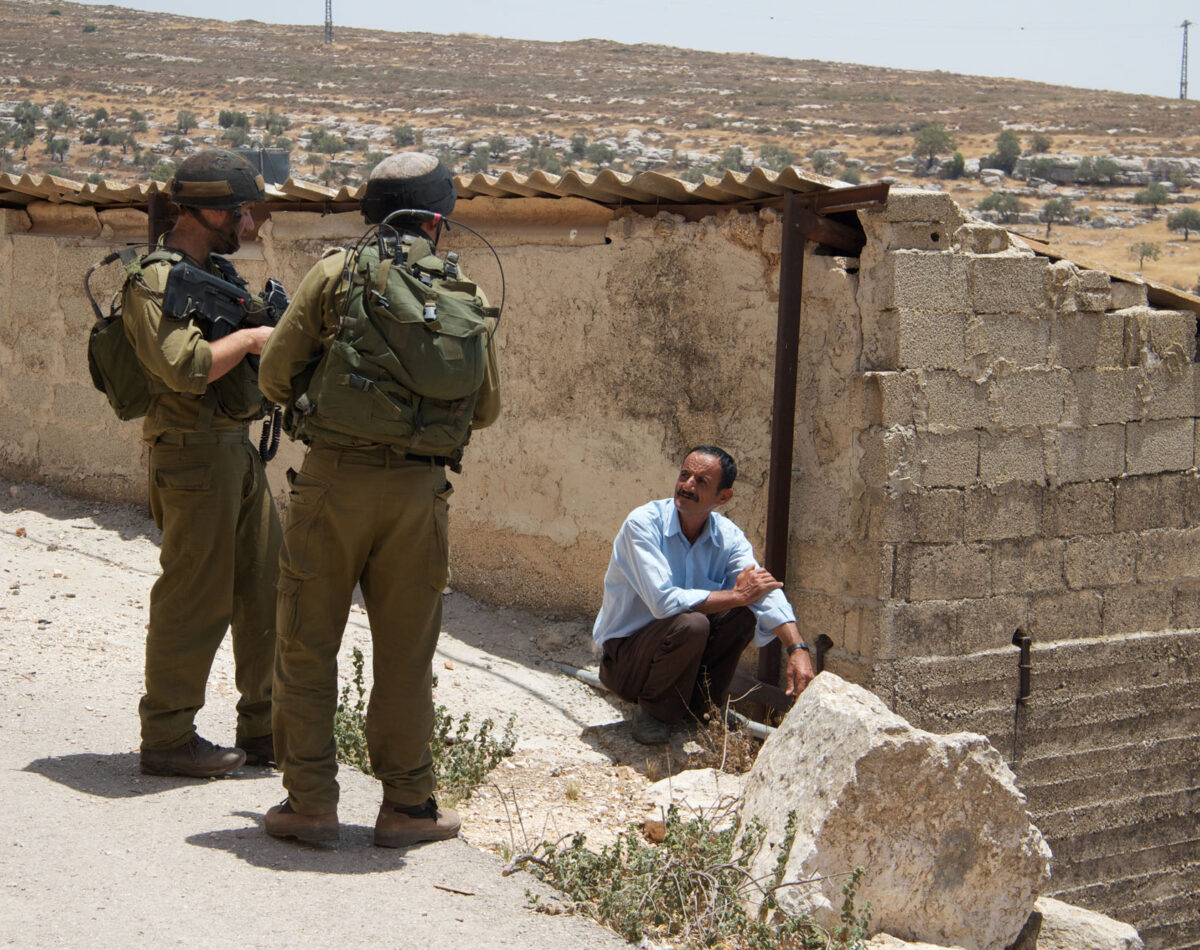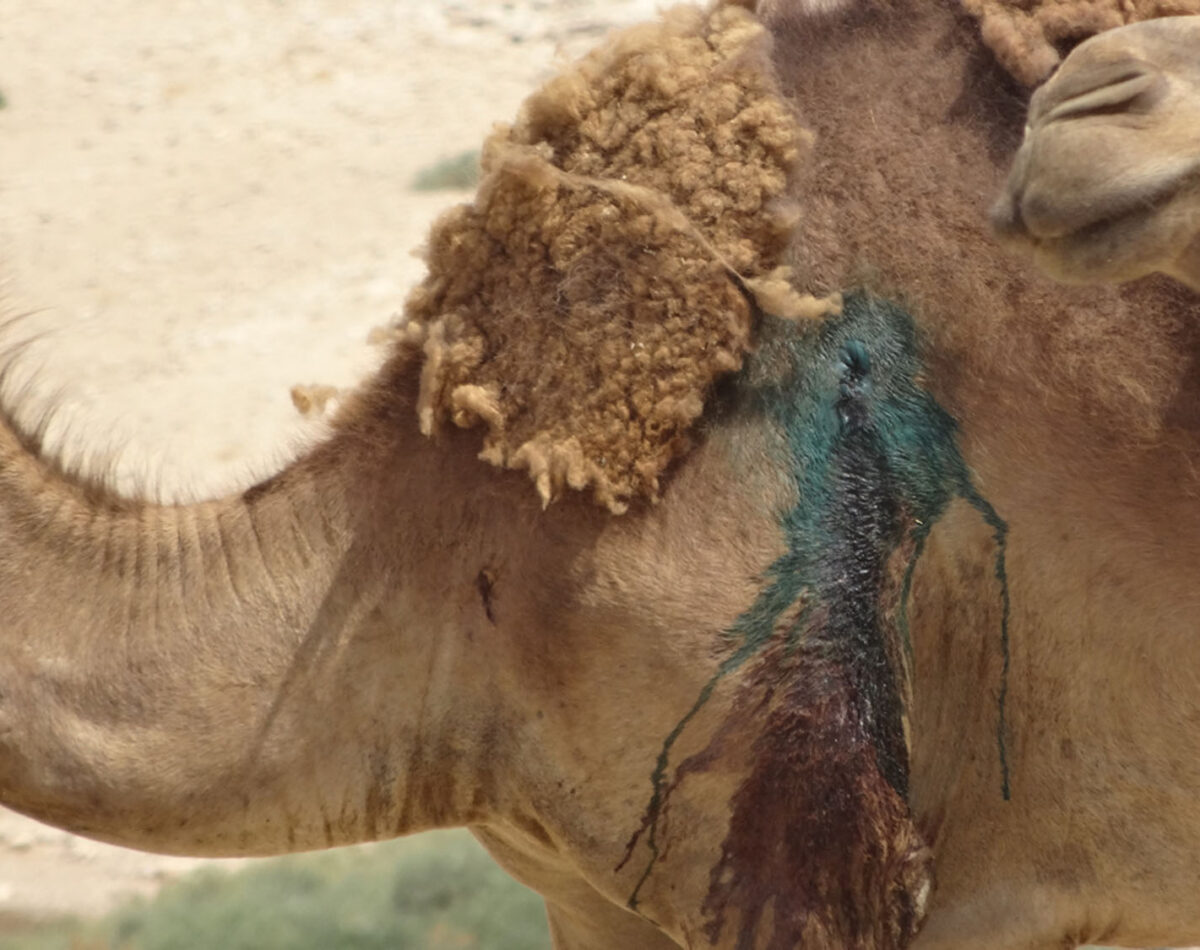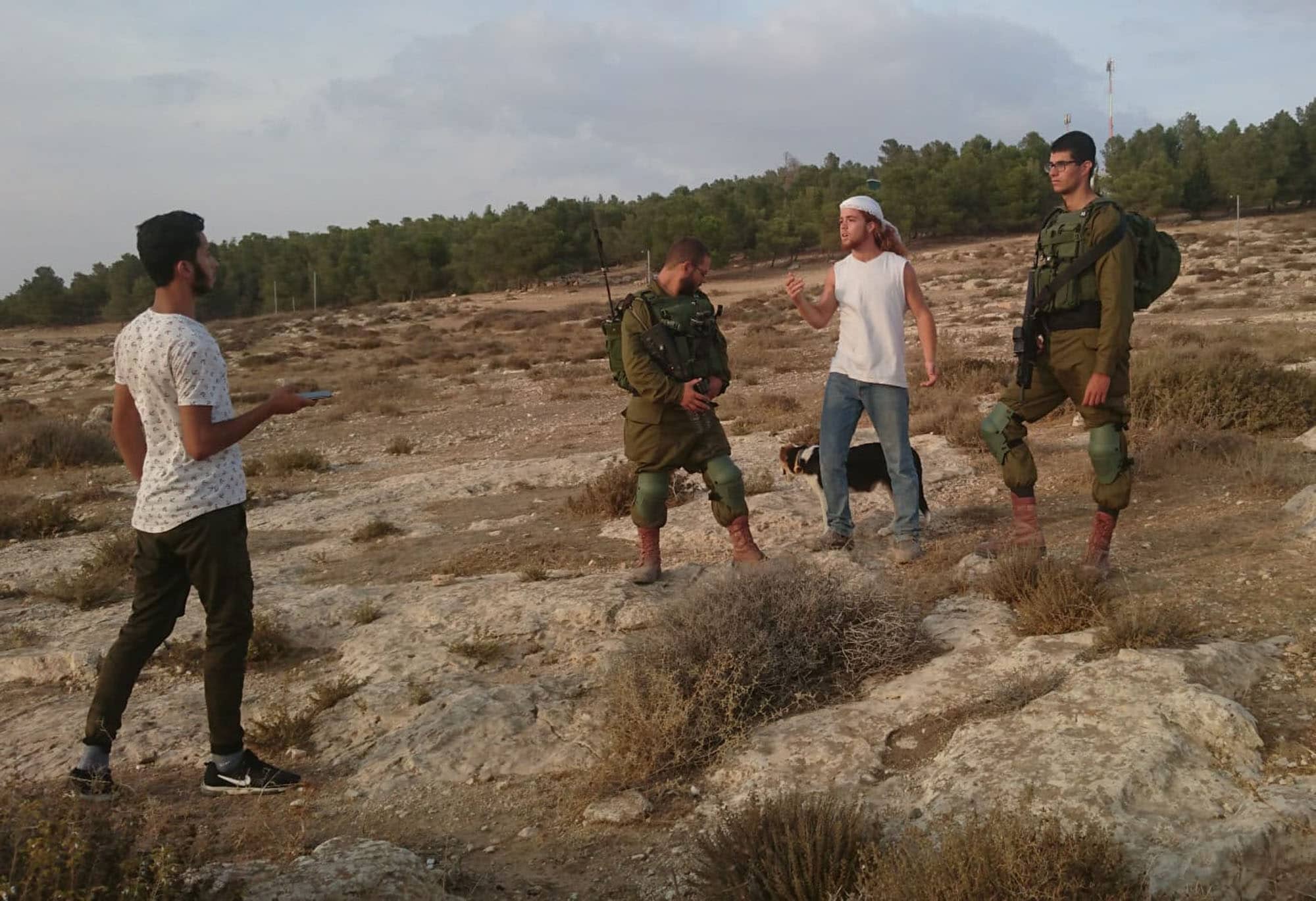Violence
by EA Sophie – 5 min read
‘Murad, one of the organisers of the demonstrations, recalls the disproportionate violence that Israeli soldiers have used against them over the years, saying that things have gone “from worse to worse”. The military uses sound bombs, tear gas and rubber-coated bullets against the demonstrators. In 2014, they killed an elderly man with tear gas. In 2016, they shot Murad’s 11-year-old son, Khaled, in the leg with a live bullet, completely fracturing his thighbone. When a family friend tried to carry him to safety, the soldiers shot him too. Khaled’s thighbone is now 3cm shorter, and he still has problems walking as a result of his injury. “We still believe in our rights, and this gives us the will to continue”, says Murad, who has been arrested four times since 2011. “We must do everything we can to stop our children having the same life.”‘ EA, Jamie
Israeli violence against Palestinians in the West Bank, including East Jerusalem
Palestinians living in this area frequently face violence and harassment from Israeli soldiers, including verbal and physical assault, random stop searches, and arbitrary arrests and home raids. In recent years, there has also been an increase in the number of Palestinians killed by Israeli forces, predominantly with live ammunition. Between January 2009 and April 2021, B’Tselem report that Israeli security forces killed 449 Palestinians in the occupied West Bank, including East Jerusalem.
Palestinians in the West Bank also live with the risk of attack from Israeli settlers. Incidents include verbal and physical assault, stone throwing, attacks on homes, arson and destruction of property. Between January 2009 and April 2021, 28 Palestinians were killed by Israeli civilians in the West Bank (B’Tselem).
The risk of violence has a serious impact on the lives of Palestinians, particularly those living in Area C and the H2 area of Hebron, where there are large numbers of settlers. Children walking to school and farmers accessing their fields are particularly vulnerable to settler violence and harassment. During the annual olive harvest, the most important time of year for the Palestinian economy, settler attacks are especially frequent. EAs have reported Palestinian farmers experiencing intimidation, destroyed trees, olive theft and attacks on livestock.
As the occupying power, the Israeli authorities are responsible for criminal justice in the West Bank, meaning that Palestinians in this area have no access to impartial law enforcement. When reporting incidents to the police, many Palestinians have experienced intimidation.
Failure to address violence against Palestinians means that there are usually no consequences for the perpetrators. This contrasts with the response of the Israeli military to suspected acts of Palestinian crime, where 95% of cases end in conviction.
42% of Palestinians who contacted Yesh Din for legal advice decided against filing a complaint to the police due to having no faith in the system and/or fear of retribution. This is unsurprising when considering the very low probability of justice:
(Source: Yesh Din)
Palestinian reports of violence by Israeli soldiers: Per cent of…
Investigations closed due to police failure: 87%
Investigations resulting in charges: 3.2%
Investigations resulting in conviction: 0.7%
Palestinian reports of violence by Israeli settlers: Per cent of…
Investigations closed due to police failure: 82%
Investigations resulting in charges: 8%
Investigations resulting in conviction: 3%
Palestinian violence against Israelis in the West Bank, including East Jerusalem
Instances of Palestinian violence in the West Bank include verbal and physical assaults on Israeli authorities and settlers, and the throwing of rocks, stones and Molotov cocktails. Palestinians have also carried out shootings and stabbing attacks against Israelis (B’Tselem). Between January 2009 and April 2021, Palestinians killed 60 Israeli civilians in the West Bank, and 26 Israeli security personnel (B’Tselem).
Violence in other areas of Palestine and Israel
Between January 2009 and April 2021, Israeli military personnel killed 3088 Palestinians in the Gaza Strip, with more injured. The violence has included the firing of live ammunition, rubber coated steel bullets, stun grenades, and tear gas, and bombs dropped from fighter jets (B’Tselem).
In the same reporting period, Palestinians killed 37 Israeli civilians in Israel and 45 Israeli military personnel in the Gaza Strip, with more injured. The violence has included suicide bombings in Israel, the firing of rockets and mortar shells from Gaza into Israel, as well as the throwing of rocks and Molotov cocktails at Israeli military personnel (B’Tselem).
A number of Israeli laws have been enacted in recent years that discriminate against Palestinian citizens of Israel. In May 2021, Adalah reported that Palestinian citizens of Israel have also been facing increasing acts of violence from far-right Jewish Israelis, which has often been met with inaction, or at times, cooperation from Israeli police.
The work of EAPPI is based in the West Bank, including East Jerusalem. Organisations such as Al Mezan Center for Human Rights can provide a much more detailed overview of the situation in Gaza, whilst organisations such as Adalah report on the issues experienced by Palestinian citizens of Israel. You can view a list of Palestinian and Israeli organisations here.





